|
DAVINCI - MONA LISA - PAGE 10
Moirai Fates / Parcae

Destiny |
- In Greek mythology, the Moirai (Fates) are the
personification of destiny.
- Moirai means shares, allotments and parts.
-
Zeus Moiragetes, the god of fate, was their leader.
- They were three sisters: Clotho (the spinner), Lachesis (the allotter), and Atropos (the inevitable, a metaphor for death).
- To the Romans, they are called Parcae and named Nona,
Decuma and Morta.
- Children of Zeus and Themis, according to the poet Hesiod.
- Their role
was to ensure every being, mortal and divine, was able to live
out their destiny based on the laws of the universe.
- Distributed to mankind all the good and bad things in life.
As man's fate terminated at his death, the goddesses of fate become the goddesses of death, Moirai Thanatoio. (theoi.com)
|
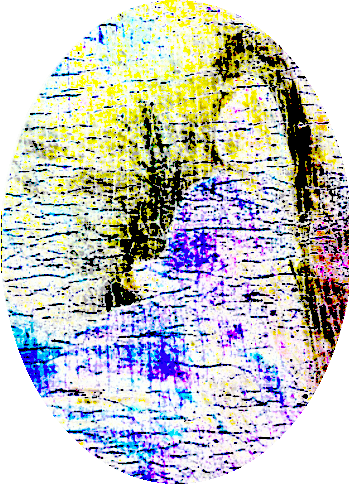
Working with threads |
|
-
The Fates were personified as three very old women who spin the threads of human destiny.
- For mortals, their destiny was represented as a thread spun from a spindle.
- They had more power over fate than the gods, although
Zeus, chief of gods, was able to override them and save souls, the Roman
Jupiter, however, could not save his son from his fate.
- Concerns
the principles of natural order and balance.
- They control when
someone is born, when they die, and how much they suffer
(karma).
This day's black fate on more days doth depend; This but begins the woe, others must end.
(Shakespeare)
|
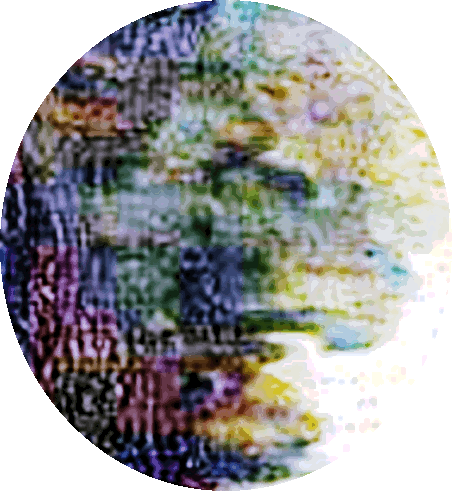
Erinyes punish most vile crimes |
|
- Destiny was set for each individual on the 8th
day of a female's life, or the 9th day of a male's life.
-
Record keepers of each life.
- The real evil-doer's were
passed to the Erinyes, who punished the most vile crimes.
Our wills and fates do so contrary run. (Shakespeare,
Hamlet)
|
|
Clotho / Nona |
|
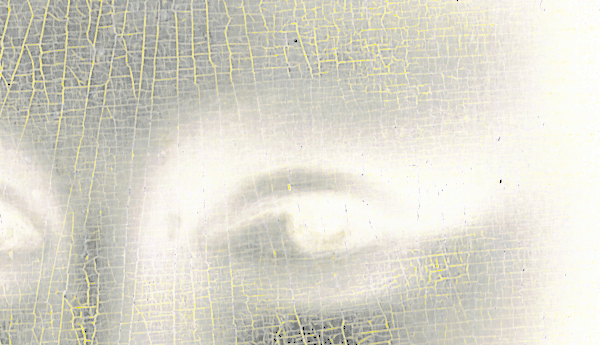
Spinner |
|
- Clotho was the Greek version and Nona
(Ninth) was Roman.
- She spun the thread of life from her
distaff onto a spindle.
- Responsible for pregnancy.
- Holds the spinning wheel.
Fate, show thy force. Ourselves we do not owe. What is decreed must be; and be this so.
(Shakespeare)
|
|
Lachesis / Decima |
|
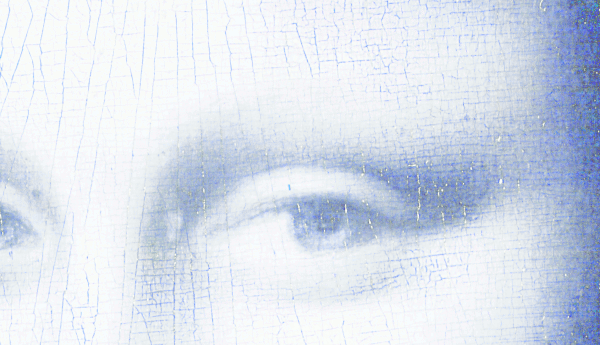
Allotter |
|
- Lachesis was the Greek version and
Decima was Roman.
- She measured the thread of life with
her rod.
- Responsible for birth.
- 'The Apportioner of Lots.'
- Braids the thread.
Men must endure Their going hence, even as their coming hither. Ripeness is all.
(Shakespeare)
|
|
Atropos / Morta |
|
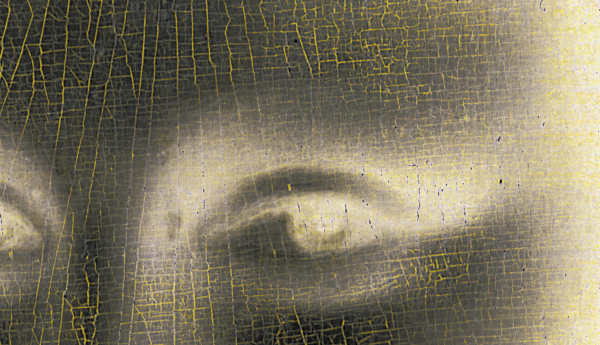
Inevitable death |
|
- Atropos was the Greek version and
Morta was Roman.
- She cut the thread of life and
determined the death date.
- Responsible for death.
-
Aisa 'she cannot be turned.'
- The one with the scissors.
- Regarded as a blind fury, since she is the one who decided how far the thread went, no matter how much the gods opposed the idea.
No matter how much mothers lamented the early death of their children, warriors tried to prolong life, or Zeus tried to dissuade them from cutting one of the threads, pleas were futile. (citaliarestauro.com)
|
Norns / Jotuns
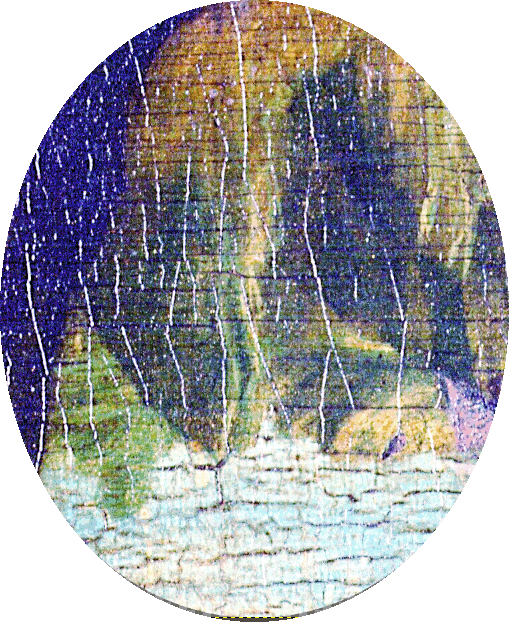
Sacred well |
- The Norns are deities in Norse mythology responsible for
shaping the course of human destinies.
- Three primary Norns
are Urðr (Wyrd), Verðandi, and Skuld.
- Found drawing water from their sacred well to nourish the tree at the center of the cosmos and prevent it from
dying.
Are you up to your destiny?
(Shakespeare)
|
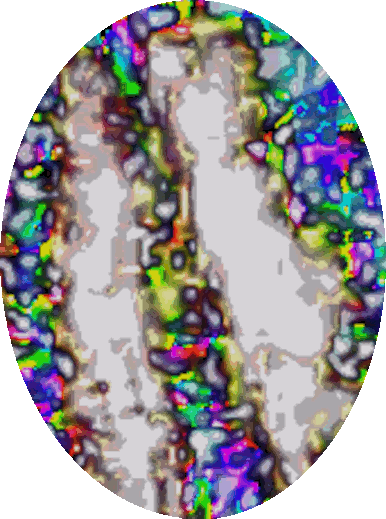
Maiden giantesses |
|
- Described as powerful maiden giantesses (Jotuns), who
arrived from Jötunheimr and ended the golden age of the gods.
- They would visit every newborn child to determine their
future.
- Some were malevolent, causing tragedy, and others
were benevolent, and were protective and kind.
- Twining the thread of fate.
My pride fell with my fortunes.
(Shakespeare)
|
Erinyes / Furies
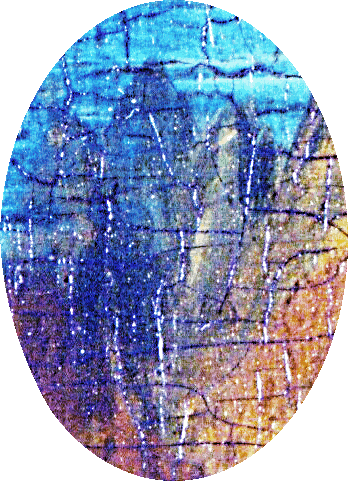
Punish evil-doer's |
- The Erinyes of Greek mythology were three goddesses of vengeance and retribution who punished
humans for crimes against the natural order.
- The Roman
goddesses were called Furia, Furies.
- Crimes such
as homicide, perjury and offenses against the gods were their
main focus.
- Victims seeking justice could call down the
curse of the Erinyes on the criminal.
Vengeance is in my heart, death in my hand, Blood and revenge are hammering in my head.
(Shakespeare)
|
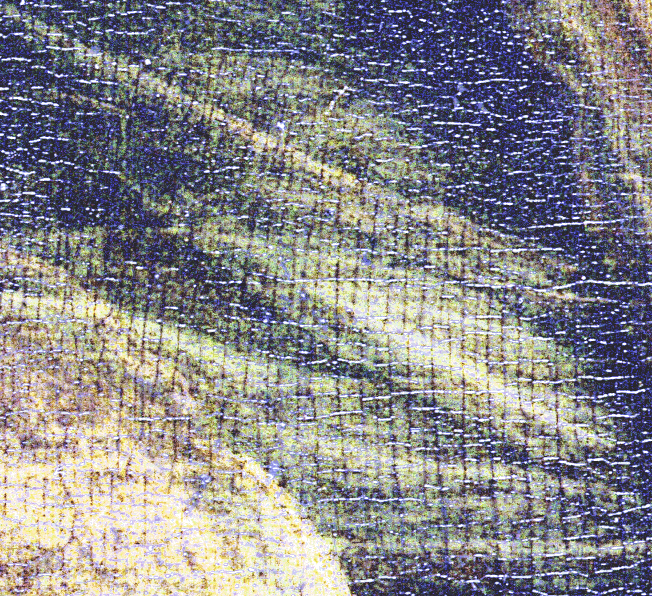
Inflicting curse |
|
- The most powerful curse
was against crimes of the parent upon the child.
- Erinyes were born of such a crime,
after they sprung from the blood of Ouranos (Uranus), when he was castrated by his son Kronos (Cronus),
and mated with Gaia.
- Also connected with Nyx, and Hades
and Persephone, who was the daughter of Zeus and Demeter.
The rarer action is
In virtue than in vengeance.
(Shakespeare, The Tempest)
|
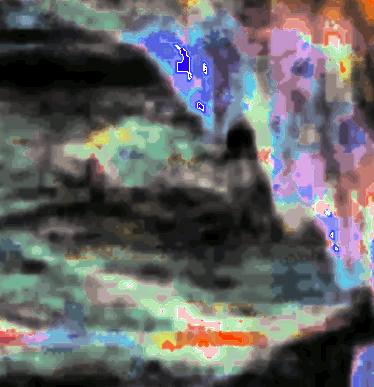
Dungeons of the Damned |
|
- The most severe of the Erinyes curse was inflicting
horrific insanity and madness on parents who hurt their
children.
- Murderers might suffer illness or death and the
nation harboring them could suffer dearth and its citizens
hunger and disease.
- Their wrath could only be placated
with ritual purification and completion of atonement tasks
assigned to the punished criminals.
- They were servants of
Hades (Pluto) and Persephone in the underworld where they
oversaw the torture of criminals assigned to the Dungeons of
the Damned.
The Erinyes were similar to if not the same as the Poinai (Poenae) (Retaliations), Arai (Arae) (Curses), Praxidikai (Praxidicae) (Exacters of Justice) and Maniai (Maniae) (Madnesses). (theoi.com)
|
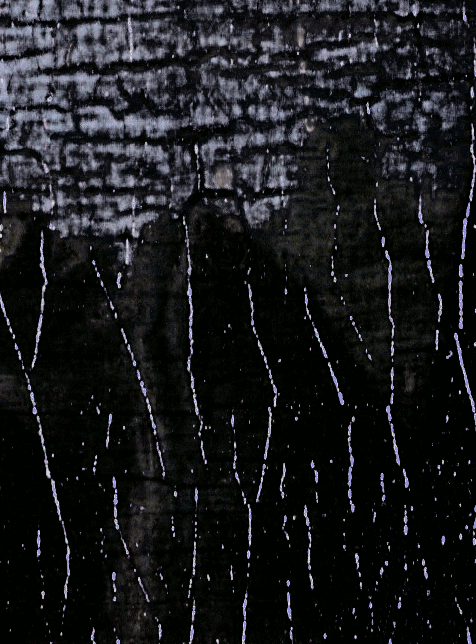
Black robes of mourners |
|
-
They were depicted as ugly, winged women with hair, arms and waists entwined with poisonous serpents.
- The sisters carried whips and were dressed either in the long black robes of mourners, or the short-length skirts and boots of huntress maidens.
And where the offense is, let the great axe fall.
(Shakespeare)
|
Demeter / Ceres
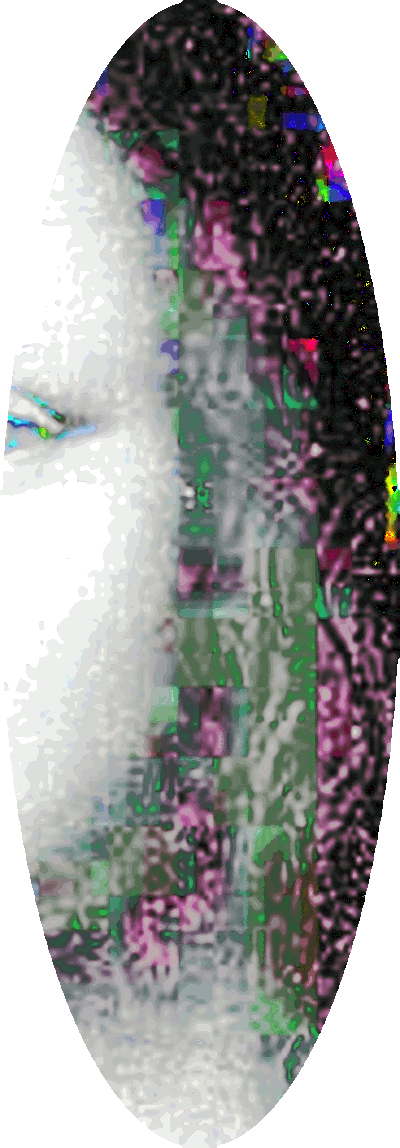
Agriculture and harvest |
- Demeter, a fertility goddess and resurrection deity, was the central deity in fertility rites held in classical Greece
that celebrated the change of seasons.
- The Romans identified Demeter with Ceres.
- She was the
Greek goddess of agriculture and harvest, especially grain, and personified the
nurturing and fertile aspects of Earth.
- She was also the
goddess of poppies.
- Demeter
was the daughter of Cronus, king of the Titans, and Rhea, his
older sister.
- Together, Cronus and Rhea produced the first generation of Olympians: the six siblings Zeus, Hades, Poseidon, Hestia, Demeter, and Hera.
The epithets Erinys (“Avenger”) and Melaina (“the Black One”) as applied to Demeter were localized in Arcadia and stress the darker side of her character. (britannica.com)
|
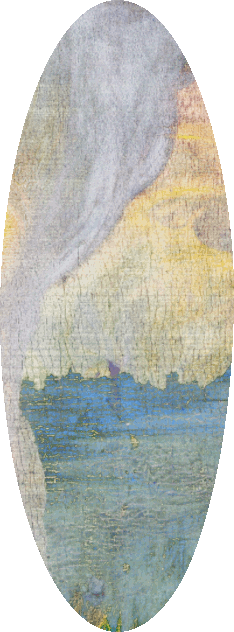
Blessings on Earth |
|
- She never married, but had two children by her brother, Zeus.
- Zeus mated with Demeter and produced a daughter,
Persephone, who joined with Hades as Queen of the Underworld.
- Although
Persephone did grow to love Hades, she remained homesick for her mother and the life she’d known on earth.
- Demeter, consumed by grief and sorrow, demonstrated her
outrage by withholding her blessing from the earth until
Persephone was returned to her.
I wasted time, and now doth time waste me.
(Shakespeare)
|
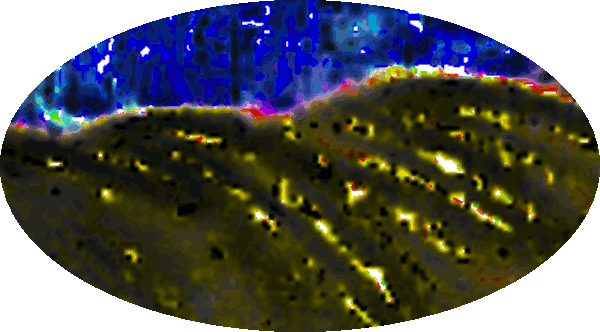
Harvested |
|
- Demeter was also the consort of Poseidon, Iasion, Karmanor
and Mecon.
- Persephone returns to the underworld during
the September equinox each year, while her mother Demeter, is unhappy as her annual winter
absense approaches.
- Demeter is associated with the zodiac constellation Virgo, the Virgin, by
a 1st-century Roman work Astronomicon.
- As
portrayed in ancient art, the constellation Virgo holds Spica, a sheaf of wheat in her hand and sits beside constellation Leo the Lion.
Demeter is not generally portrayed with any of her consorts; the exception is Iasion, the youth of Crete who lay with her in a thrice-ploughed field and was killed afterward by a jealous Zeus with a thunderbolt. (Wikipedia)
|
|
Themis |
|
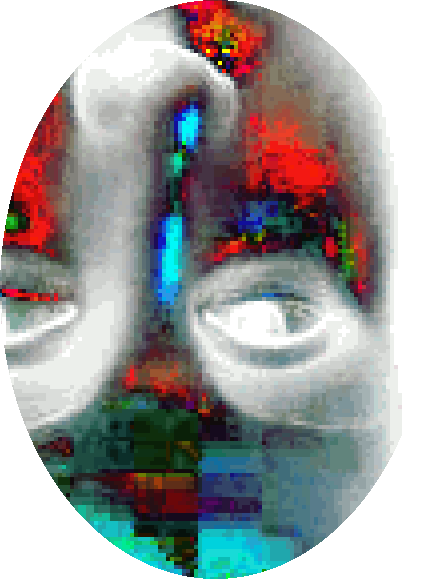
Scales of justice |
|
- Themis, in Greek mythology, was the
goddess of wisdom and good counsel.
- Her name means 'divine law' rather than human ordinance.
- She is associated with oracles and prophecies.
- According to Hesiod,
she was the daughter of Uranus (Heaven/Sky), and Gaia (Earth), and
was one of the 12 Titans.
- Themis maintained order and supervised the ceremonial
rites.
- The cult of Themis was widespread in Greece where
she had several temples.
- She was represented as a woman of sober appearance carrying a pair of scales
and sometimes a sword.
- Themis shared the small temple at Rhamnous with Nemesis,
however, she was not wrathful.
At this hour Lie at my mercy all mine enemies.
(Shakespeare)
|
|
Leto / Latona |
|
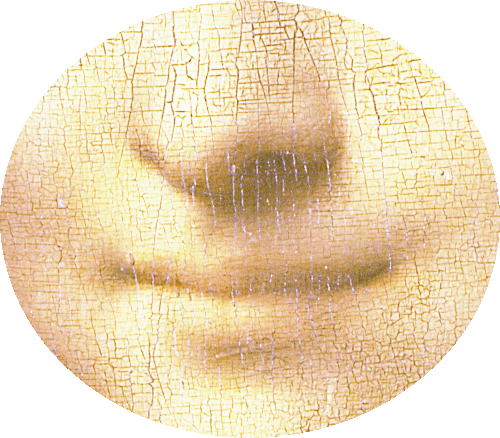
Mothering |
|
- In Greek mythology, Leto, the goddess
of motherhood, was the mother of Apollo and
Artemis who were fathered by Zeus, who she married before Hera.
- Hera, the wife of Zeus,
who was very jealous, ordered all lands to shun Leto and deny her shelter
and sent Python, a giant serpent, after her.
- Her Roman
equivalent is Latona.
- She was the daughter of Titans, Coeus and Phoebe, and
the sister of Asteria.
- Besides the myth of the
painful birth of Artemis and Apollo, Leto appears in other
stories, usually where she punishes mortals for actions taken against her.
Plenty and peace breed cowards; hardness ever of hardiness is mother.
(Shakespeare)
|
Hyperion
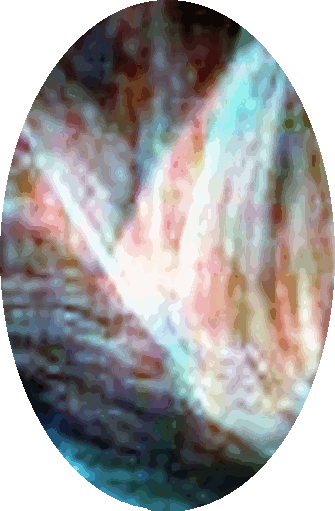 |
|
|
Light. he who goes before |
|
-
Hyperion is the Titan of light, and the father of the Sun
(Helios), the Moon (Selene), and the Dawn (Eos) that he
fathered with his sister, Theia, goddess of sight.
- He was
the son of Uranus (Heaven/Sky) and Gaia (Earth) and one of the 12
Titans.
-
Hyperion and his son Helios, are a personification of the sun.
-
His name also means, he who walks on high, or, the god above.
- In
Hesiod's, the Theogony, Uranus imprisoned all the children that Gaia bore him, before he was overthrown.
- According to Hesiod, Hyperion subjected his sister Theia to his love, and fathered three children with her, who became the lights of heaven.
Saturn is fallen, am I too to fall?
Am I to leave this haven of my rest,
This cradle of my glory, this soft clime,
This calm luxuriance of blissful light,
These crystalline pavilions, and pure fanes,
Of all my lucent empire?
It is left
Deserted, void, nor any haunt of mine.
(John Keats, Hyperion)
|
Theia
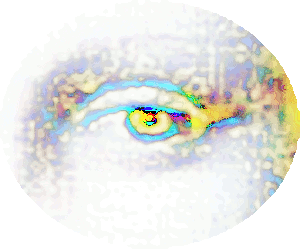 |
|
|
Sight and brillance |
|
-
In Greek mythology, Theia, goddess of sight, vision and brillance, was
one of the 12 Titans.
- Goddess of the shining ether of the bright, blue sky (aithre).
- She was the daughter of Uranus
(Heaven/Sky) and Gaia (Earth) and one of the 12 Titans.
- Theia
mated with her brother, Hyperion, god of light, and they
produced the Sun (Helios), the Moon (Selene), and the
Dawn (Eos).
- Gaia crashed into planet Theia almost 4.5
billion years ago and created planet Earth and her moon.
- Researchers Find Possible Traces of Theia Under the Earth’s Surface.
Art thou not, fatal vision, sensible to feelings
as to sight?
(Shakespeare)
|
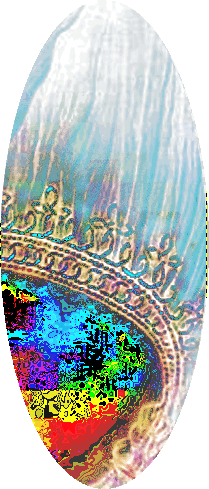
Brilliance and value |
|
- She endowed gold, silver, and gems with their brilliance and intrinsic value.
- Blue sky and wide shining (Euryphaessa); sight, prophecy, and all things that shimmer (especially gold).
- Theia was regarded as the deity from which all light proceeded.
A good heart 'is worth gold.
(Shakespeare)
|
Helios / Sol (Sol Invictus)
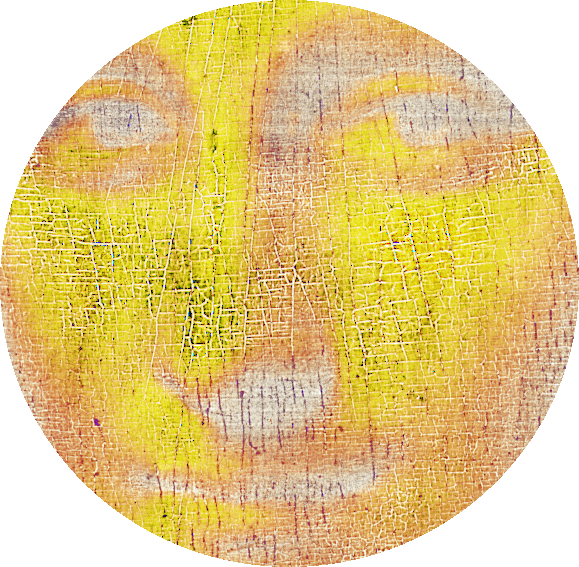 |
|
|
Sun |
|
- Helios, the Greek god of the sun, was a guardian of oaths and also the god of sight.
- He was the son of Hyperion and Theia and was also the personification of life and all life-giving power
and the brother of Eos (Dawn) and Selene (Moon).
- His Roman
equivalent was Sol (Sol Invictus) and his Egyptian counterpart
is Ra.
- Helios mated with Oceanid nymph Perse and fathered
Pasiphaë who was queen of Crete.
Put forth thy hand, reach at the glorious gold.
(Shakespeare)
|
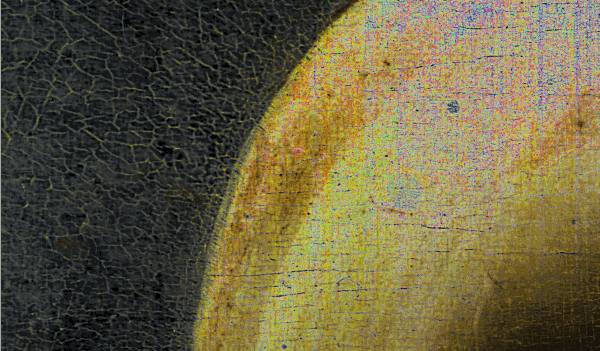
Nighttime journey in big cup |
- Helios rode a chariot daily from east to west across the sky and sailed around the northerly stream of Ocean each night in a huge cup.
- His sun-chariot was drawn by four, sometimes winged, steeds.
- Heliopolis was the seat of worship of Helios, therefore its name means the Sun City in Greek.
The most famous myth in which Helios takes part is
that of his mortal son, Phaethon. The boy demanded
that his father Helios allow him to drive his gleaming
chariot across the sky for a day. However, Phaethon
was unable to control his father’s horses, and the
chariot ran wild through the heavens until Zeus
intervened and struck the young man dead.
(greekmythology.com)
|
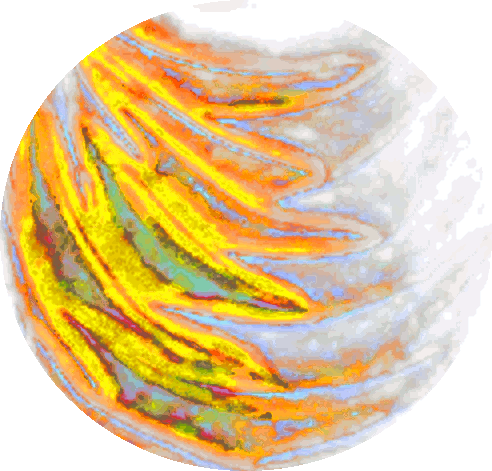
Carrington event |
- Aurora forecast, strong solor
storming.
- Super active sun spot AR3664 starting around
May 10, warning about a geomagnetic storm that could possibly
damage technology.
- The threat of additional solar flares that will
remain until the large and magnetically sunspot cluster (NOAA
region 3664) rotates out of view.
- In the sky, aurora were visible
with some of the most expressive views ever seen, visible as
far south as Hawaii in the Northern hemisphere, and as far
north as Queensland in the Southern hemisphere which is very
strange.
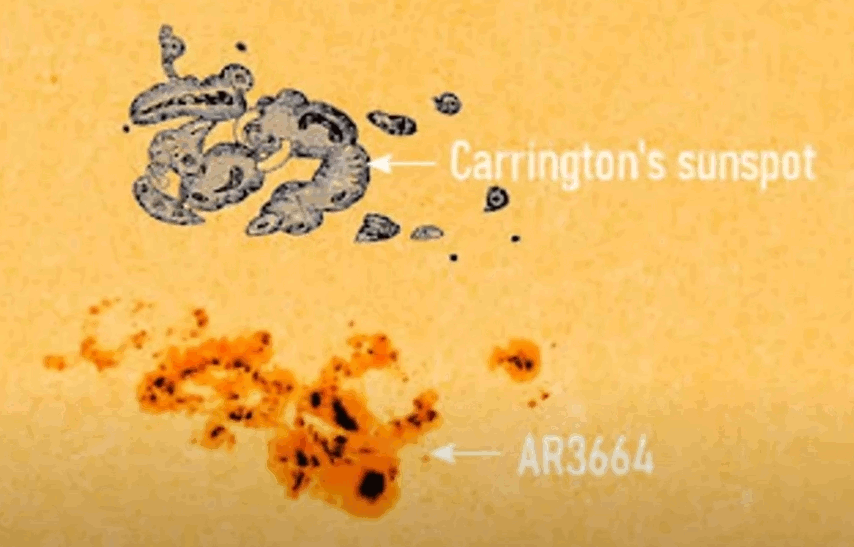
Sunspot pattern (15X size of Earth) |
- Reports of power grid
irregularities and degradation to high frequency
communications and GPS.
- Solar flash, five coronal mass
ejections and multiple solar flares, all hit planet Earth.
- Categorized as G5 solar storm, the highest powerful G
magnetic storm possible, and it happened twice in one weekend.
- Classified as a catastrosphic event,
although no major damage was incurred, which is a mystery.

X masked |
- Something very similar occurred in October 2003, and was
called the Halloween (day of the dead) solar storms that
resulted in huge aurora witnessed around the world, as well as
major power outages in countries like Sweden and South Africa
(where the transformers exploded and caused major damage to
their power grid).
- Technically, this is not over and
could hit again in 2025, although the sunspot has turned a
blind eye and is facing backwards now.
- A real DaVinci
event with all the colors from blue, green, red to magenta.
- Watch: Wow! Did We Just Live Through an Actual Carrington Event? Maybe...
Beauty provoketh thieves sooner than gold.
(Shakespeare, AsYou Like It)
|
Pasiphaë
 |
|
|
Eye on Cretan Bull |
|
- Pasiphaë was a queen of Crete, and was often referred to as goddess of witchcraft and sorcery.
- She was the daughter of Helios and the Oceanid nymph
Perse and the mother of the Minotaur.
- Pasiphaë was given in marriage to King Minos of Crete.
She conceived the Minotaur after mating with the
Cretan Bull while hidden within a hollow cow that the
Athenian inventor Daedalus built for her, after
Poseidon cursed her to fall in love with the bull, due
to her husband, Minos, failing to sacrifice the bull
to Poseidon as he had promised.
(Wikipedia)
|
Eos / Aurora
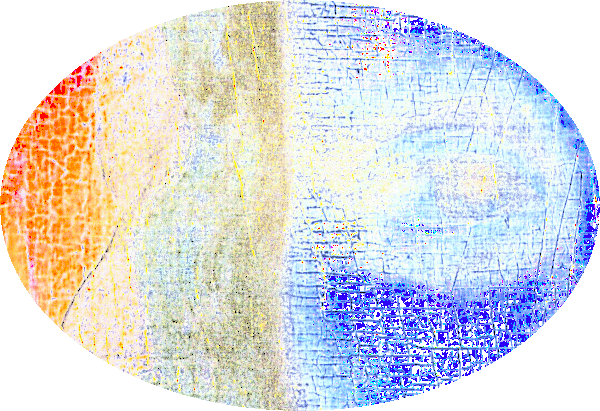 |
|
|
Rosy-Fingered
Dawn |
|
- Eos, goddess of dawn, was the daughter of the Titans Hyperion and Theia, and the sister of Helios, god of the sun, and Selene, goddess of the moon.
- Her Roman equivalent is Aurora.
- Eos rose each morning from her home at the edge of the river Oceanus to deliver light and disperse the night.
- Sometimes, as the goddess who dispenses the dews of the morning, she has a pitcher in each hand.
Good morning to you, fair and gracious daughter.
(Shakespeare)
|
|
Eos Taking Leave of Tithonus |

With his lyre |
- In ancient times, the goddess Eos (Aurora) fell in love with Ares
(Mars), the god of war, and he could not resist the beauty of this goddess of the dawn.
- Rosy-fingered Eos, dressed in long robes of saffron, and sitting upon her throne, she glimmered and
when she looked at Ares he could not resist her.
- Aphrodite
learned of Ares' love, and burning with jealousy, she cast a curse upon Eos
so that she would forever more, fall in love.
- From that
time on, Eos fell in love with mortal men which was a sad fate for a goddess, for mortal men do not live forever as goddesses do.
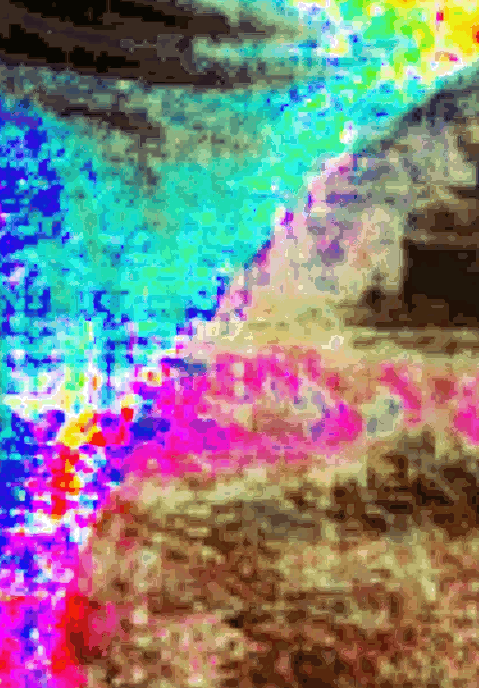
Smelling roses |
- But of all the tales of heartbreak, there was no sadder story than the tale of Tithonus.
-
Tithonus was a prince of Troy, the handsome son of King Laomedon by the Naiad Strymo
and carried a lyre in his hand.
- Trojan Tithonus loved Eos because who could resist the love of such a beautiful goddess?
- She fell in love with Tithonus and took him to Ethiopia, where she
gave birth to Emathion and Memnon, who also grew up to be
famous among men and gods.
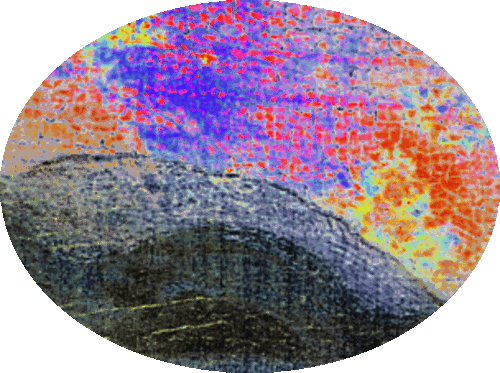
Ethiopia sunset |
- Just like every day, Eos woke the world each morning with curling rings of light, and every morning she mystically brought the world out of darkness.
- Whenever Tithonus looked at her, he felt a warm glow, the way so many people feel at dawn.

Immortality |
- Eos began to mourn the future
worrying about how she would survive once Tithonus passed on
from mortal life.
- She could not imagine such a life, and so she asked the greatest god of all, Zeus, to grant Tithonus immortality
which was granted.
- According to the Homeric Hymn to Aphrodite, Aurora
asked Jupiter (Zeus) to grant the young human immortality, but she
forgot to ask for eternal youth.
- There had never been a happier man, loved by a beautiful goddess,
and Eos was joyful too.
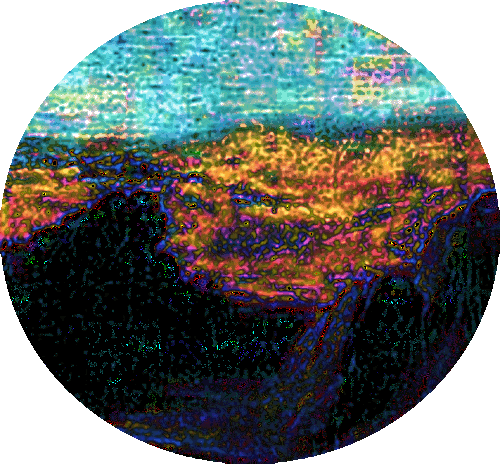
Road block |
- Except when the reality hit that
Eos had forgotten to ask Zeus for eternal youth, they both
mourned.
- Tithonus would live forever, but even Zeus did not have the power to make him a god.
- When Eos understood Tithonus' fate, the sight of him filled
her with such sadness that she could not bear to look at him,
and fell in love with others.
- Tithonus roamed the silent
palace like a shadow and was ashamed of his desire for
immortality that his wife wished for him long ago.
- He
realized how arrogant he had been and how he had not thought
things out, especially his future.
My friend has fallen and he can't get up. (Phil
Collins)
|
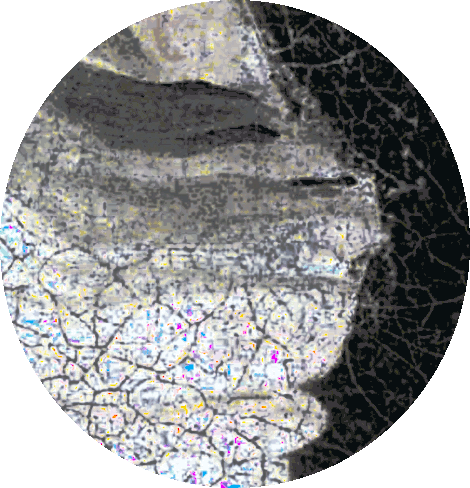
Old and withered
cicada |
- As a result, he grew old and withered.
- Tithonus grew unspeakably ancient, and longed for the ordinary, humble mortal fate that he earlier rejected: death becomes almost his only desire.
- And he would see Eos shimmering in her eternal youth and
realized she was lost to him.
- Eos could no longer bear
all this and she used her powers to transform him into a
cicada.
- She watched him emerge from the ground, his body
pale, but still fresh as he shed his old skin, wings spreading
instead of arms, and his voice singing on and on.
The woods decay, the woods decay and fall,
The vapours weep their burthen to the ground,
Man comes and tills the field and lies beneath,
And after many a summer dies the swan.
Me only cruel immortality
Consumes;
I wither slowly in thine arms.
(Alfred Lord Tennyson, Tithonus)
|
Selene/ Luna
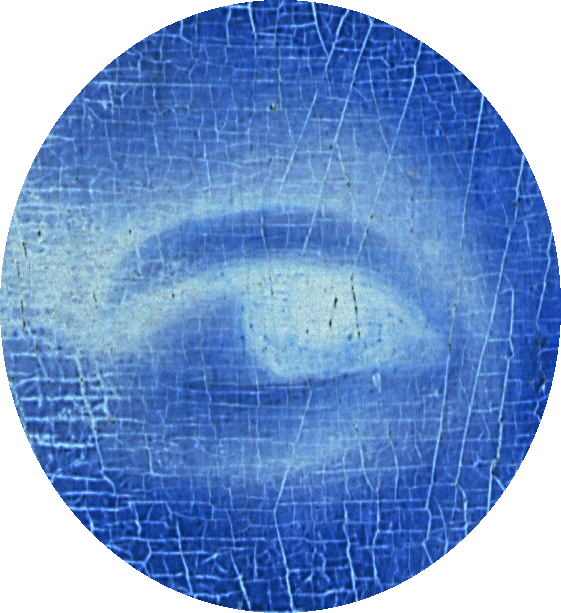 |
|
|
Moon |
|
- Selene (Mene), goddess of the moon, was the daughter of the Titans Hyperion and Theia, and the sister of Helios, god of the sun, and
Eos, goddess of the dawn.
- Her Roman equivalent is Luna.
- Every night, she travels across the sky in her chariot
drawn by a pair of winged steeds, pulling the moon behind her,
or riding sidesaddle on a horse.
- Crescent moon on her
head.
- She was sometimes said to drive a team of oxen and her lunar crescent was likened to a pair of bull's horns.
Arise, fair sun, and kill the envious moon, Who is already sick and pale with grief That thou, her maid, art far more fair than she. . .
.
(Shakespeare)
|
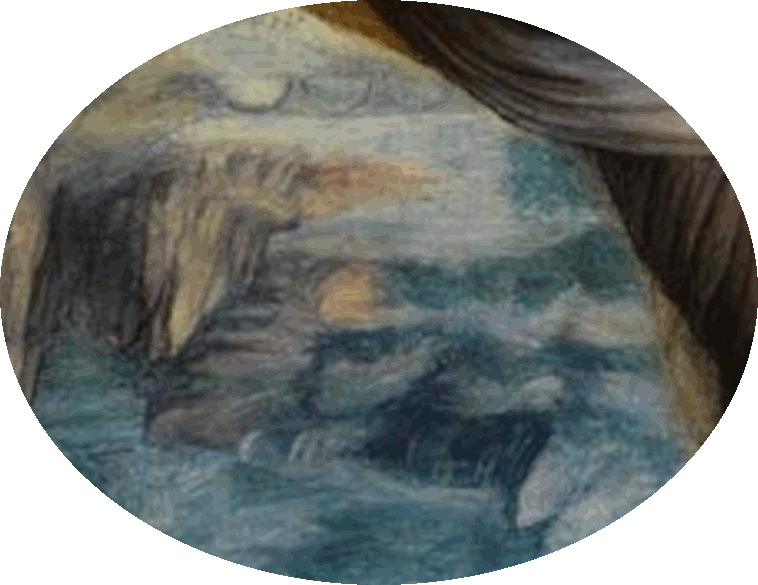
Endymion in slumber |
- Selene had several lovers attributed to her in various myths, including Zeus, Pan, and the mortal Endymion.
-
Her greatest love was the shepherd prince Endymion who as a
young boy was granted eternal youth and immortality by Zeus.
- Endymion was placed in a state of eternal slumber in a cave near the peak of Lydian Mount Latmos (Latmus).
- Luna, his heavenly bride consorted with him there in the night.
Selene and Artemis were also associated with Hecate and all three were regarded as moon and lunar goddesses, but only Selene was regarded as the personification of the Moon itself.
(Wikipedia)
|
|
Selene Moon |

Crescent |
- In astrology, the Moon rules the 4th house (home) and centers around
parents, home, family, foundation and ancestral patterns.
-
It is
linked to zodiac sign Cancer.
- Encompasses a wide range
of associations from your ancestral roots to old age, endings
and your final resting place.
- In Greek mythology, a
crescent moon represents womanhood, fertility, intuitiveness, psyche and empowerment.
The moon, like to a silver bow new bent in heaven.
(Shakespeare, A Midsummer Night's Dream)
|
Eros / Cupid
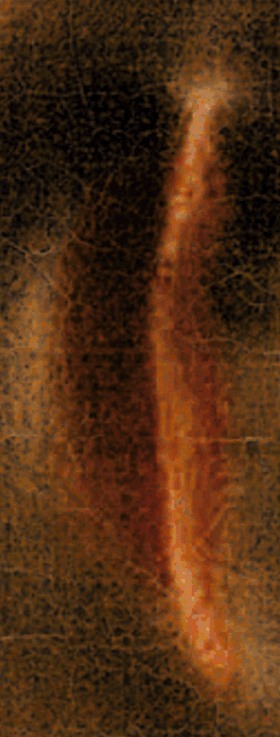 |
|
|
Cupid bow |
|
- Eros was the Greek god of carnal love,
always winged and carrying a bow and arrow.
- In Latin he is called Amor (love) or Cupid (desire)
in Roman mythology.
- Eros was the assistant, and to some the son, of
Ares, god of war, and Aprhodite, the goddess of love and fertility.
-
Eros made people fall in love, accompanied by Aprhodite, by shooting an arrow into their heart.
Psyche / Anima
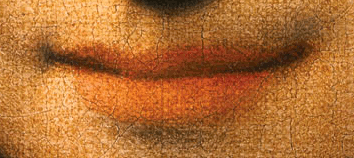 |
|
|
Butterfly wings |
|
- Psyche was a beautiful Greek goddess
of the soul with butterfly wings.
- Her Roman equivalent
was Anima.
- She was born a mortal woman and was granted immortality.
- Her beauty rivaled even that of Aphrodite, goddess of love.
- Psyche was married to Eros, god of love.
Psyche is featured in the creation myth found in the ancient Gnostic text known as On the Origin of the World. Here she appears as a lover of Eros who pours her blood upon him and also upon the Earth, which causes the first rose to appear on the Earth from a thorn bush.
(Wikipedia)
|
The Golden Ass
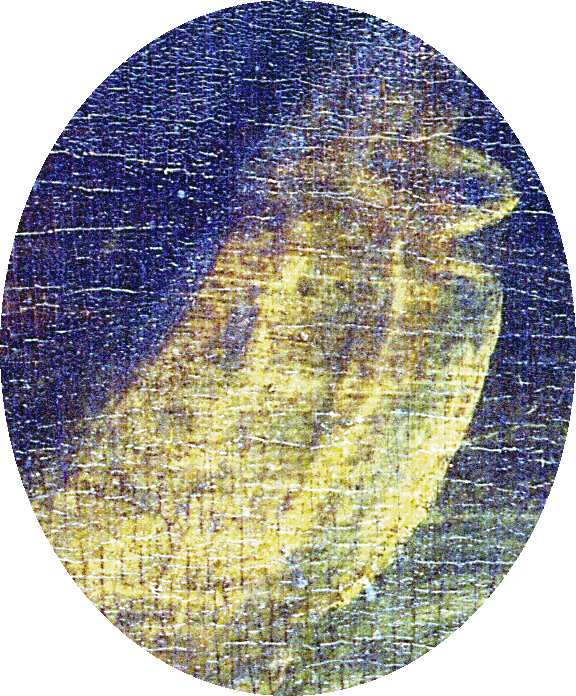
Eros
cloaked |
|
- Written in Latin, from the 2nd century
BCE by Apuleius.
- Psyche was so
beautiful, not only was she more beautiful than Aphrodite, but
she was often mistaken for her.
- She was so beautiful, that
Aphrodite became jealous and angry that Psyche was worshiped
over her, and she was receiving Aphrodite's offerings.
- As punishment, Aphrodite sent her son Eros, a
vile and hideous monster (narcissist), to fall in love with Psyche, as he
could make anyone fall in love with his arrow.
"...Wake when some vile thing is near."
Love spell with a mean twist.
What thou seest when thou does wake,
Do it for thy true love take;
Love and languish for his sake.
(Shakespeare, Twelfth Night)
|
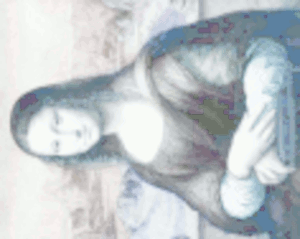
Psyche in slumber |
- Eros did as he was directed by hs mother and approached Psyche as she slept and touched her with one of his arrows.
- Psyche awoke, and although she did not see him because
he was invisible, Eros accidentally wounded himself with his
own arrow and fell in love with her.
-
Psyche had two older sisters who were very jealous of her,
even after they both married kings and moved away.
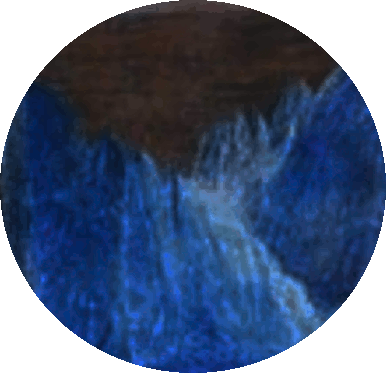
Psyche chilly |
- Unfortunately, Psyche
didn't have a boyfriend, as she was so beautiful, all the males wanted to
worship her from a distance instead.
- Her
parents were so disturbed by this, they consulted the Oracle
of Delphi for answers.
- Apollo, speaking through the Oracle, said "Despair, king. Your daughter will marry a beast even the gods fear. Dress her in funeral clothes and take her to the tallest rock spire in the kingdom. There, she shall meet her doom."
- The king returned heartbroken but obeyed Apollo's orders.
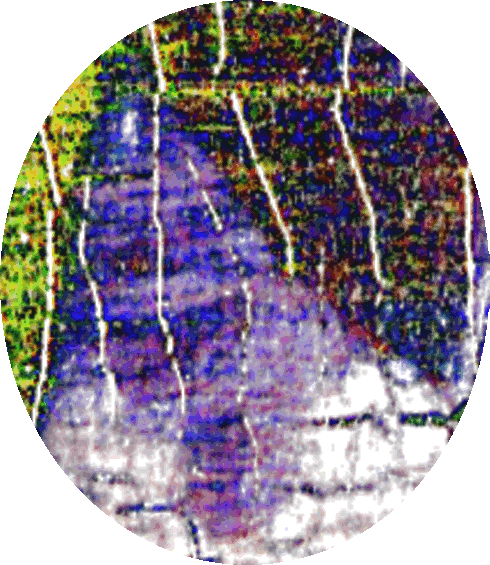
Psyche cloaked |
- Once Psyche was abandoned on the spire, she waited for
the beast and he never showed up.
- Zephyrus, the Greek lord of the west wind, carried her away from the rock and moved her to a place where she fell into a deep sleep.
- When she woke up, she found herself in a luxurious palace constructed of gems and gold.
- An invisible voice told her everything there was hers, and
to make herself at home; so she took a bath and ate a big
feast.
Eros, thou yet behold'st me?
(Shakespeare, Antony and Cleopatra)
|
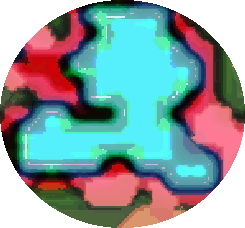
Invisible voice jewels and gems |
- Psyche found out that the invisible voice was her new
husband, Eros, god of love, who only visited her at night, and didn't want her to
see his face or know his name.
- He told her it was better
for her to love him as an equal, rather than see him as
someone godly.
- Psyche feared the voice, but after several
weeks in the palace, she began to enjoy herself, and she fell
in love with the voice.
- During
the days, however, she was very lonely, so she asked for her
sisters to visit her.

|
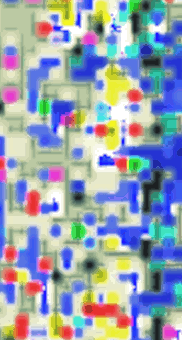 |
|
Palace windows |
- Eros eventually permitted her to invite her family to the palace.
- He instructed Zephyrus to carry the sisters to the palace so they
could be reunited.
- When they arrived, her sisters became
even more jealous, and they began to ask questions about Psyche’s husband, intending to trick her.
- At first, Psyche lied about who her husband was, claiming he was a hunter,
but finally admitted she had never seen his face and didn't
know his name.
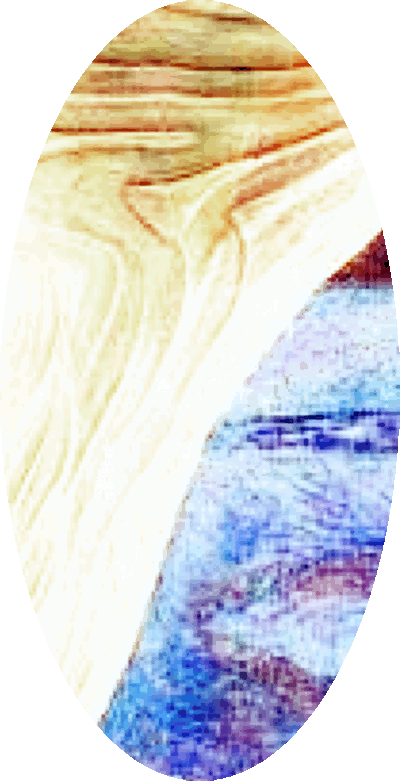
Eros awakes |
- In anger and jealousy, the sisters remembered the
Oracle's words and claimed that Psyche's husband was not a
kind man, but was in fact a monster, and that she should approach
him in his sleep and kill him.
- Psyche was swayed by her sisters' words and
checked on Eros while he was sleeping, sneaking into his room with an oil lamp and a knife.
- When she shone her lamp on his face, she realized he was a
god and stopped worrying.
- As she moved away, a drop of
hot lamp oil landed on Eros' shoulder and he awoke and felt
betrayed by Psyche.
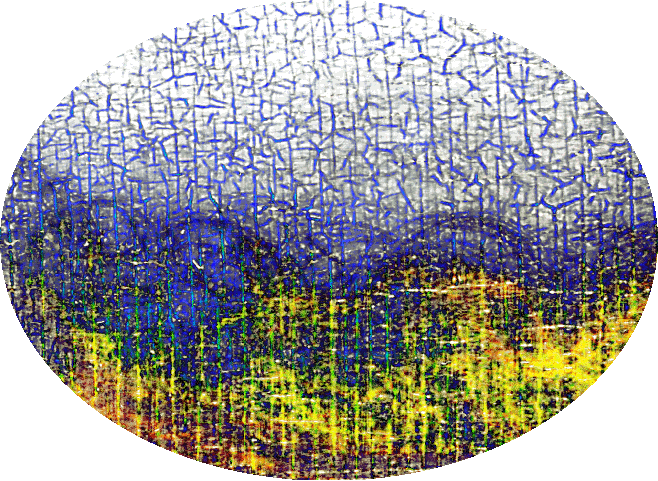
Empty field |
- Eros fled back to his mother, Aphrodite, and she tended
his burns and also found out about his secret marriage to
Psyche.
- As he disappeared, so did the palace, and Psyche found herself in a field near where her sisters lived.
- Psyche told her sisters what happened and they pretended
to be sad, but really, they gleefully started making plans to
convince Eros to marry one of them.
- The two sisters traveled to the peak and jumped, thinking Zephyrus would catch them and take them to the palace as he did the last time.
- Zephyrus, knowing what was in their hearts, ignored them and the two sisters fell to their deaths.
Alas, that love, whose view is muffled still,
Should without eyes see pathways to his will.
(Shakespeare, Romeo and Juliet)
|
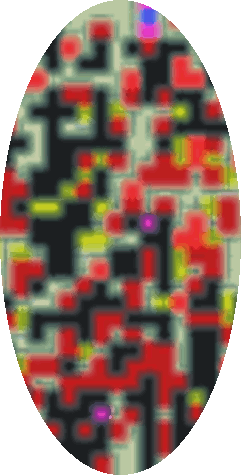
Poppy seeds |
- Upset and lost, Psyche wandered and searched for her lover,
Eros.
- Demeter, the goddess of agriculture, pitied her and told her to go to Aphrodite and beg for forgiveness,
but Aphrodite ended up whipping and torturing her.
- She was given barrels of grains, barley, wheat, beans, and poppy seeds to sort through, and
she was ordered to have them sorted by evening.
- An ant felt so bad for Psyche's despair, he helped her quickly
sort the grains.
- Aphrodite was enraged the task was completed
so quickly, she assigned another task to Psyche.
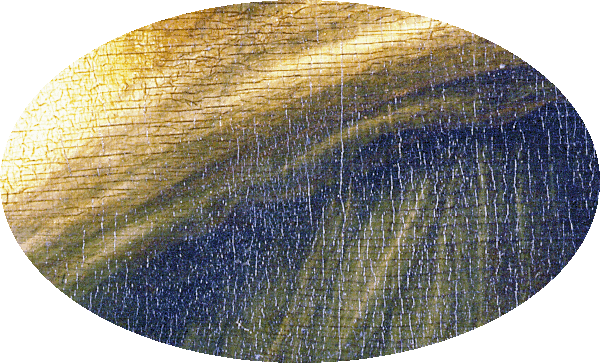
Golden fleece |
- Psyche was ordered to shear the golden fleece from a pack of rams known for being violent.
- Rather than be killed by the rams, Psyche planned on drowning herself in the river,
but as she prepared to do so, the river god Potamoi spoke and said, "Psyche, tried by much suffering, do not pollute my holy waters with your pitiable death."
- Potamoi then instructed Psyche to wait until the end of the
day when the weather cooled down, and the animals would be less likely to attack her.
- Psyche took his advice and waited a few hours, and was able to safely shear the fleece off the backs of the rams.
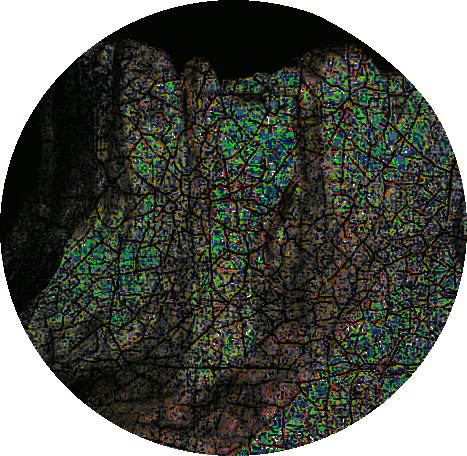
Treacherous cliff |
- Next, Aphrodite gave Psyche her third task to gather the black waters from the River Styx in a crystal cup the goddess had given her.
- Psyche once again began to despair, for getting to the river itself meant climbing up a treacherous cliff and risking her life.
- This time, it was Zeus who took pity on the girl and sent his eagle to retrieve the water for her in the crystal cup, thus successfully completing the third task.

Golden box |
- For the final task, Psyche was given a golden box and ordered to travel to the Underworld to retrieve a bit of beauty possessed by Persephone, queen of the Underworld.
- Psyche, believing this last task was impossible, once again decided to take her own life.
- She climbed a tower and was getting ready to jump, but the tower spoke and
told Psyche to go to the border of Sparta where there was a passageway to the Underworld.
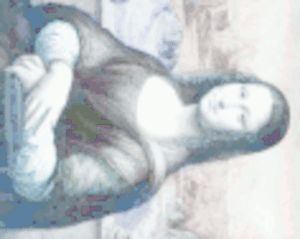
Deep sleep |
- Upon arriving in the Underworld, Psyche was happy to find that Persephone willingly filled the box with
a snippet of her beauty.
- Curiosity once again overcame Psyche and she opened the box,
and instead of finding a sample of beauty, she found a cloud of darkness
and fell into a deep sleep.
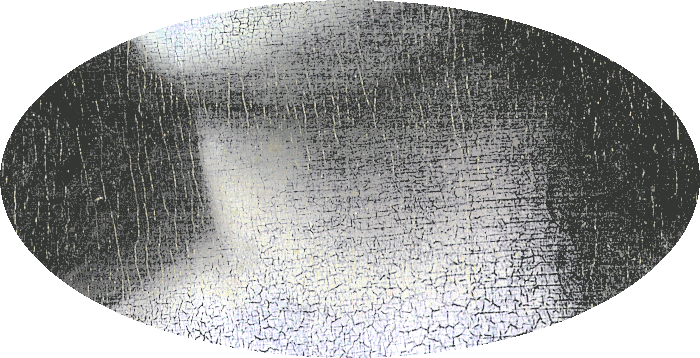
Eros strong |
- Eros had fully healed from his injury and took flight to find his love.
- When he found Psyche, he gently awoke her with an arrow and took the box to Aphrodite before going in search of Zeus to plead his case.
- The god of the sky agreed to help Eros and Psyche in exchange for Eros’ service the next time a beautiful maiden caught his eye and the deal was made.
Unarm, Eros; the long day's task is done,
And we must sleep.
(Shakespeare, Antony and Cleopatra)
|
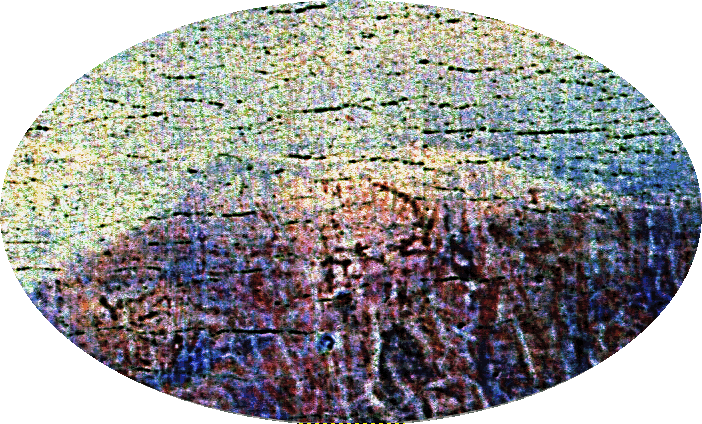
Assembly of gods |
- Zeus arranged an assembly of gods, sending Hermes, the messenger, to gather the gods together.
- At this assembly, Zeus warned Aphrodite not to ever bring harm to Psyche again.
- He handed Psyche the drink of the gods, ambrosia, and granted her immortality.
- Afterward, Psyche and Eros were married and a big celebration and feast
began.
- Living happily ever after, Psyche and Eros had a child, Hedone, the goddess of pleasure, and Psyche's
name was changed to the goddess of the soul.
My bounty is as boundless as the sea,
My love as deep; the more I give to thee,
The more I have, for both are infinite.
(Shakespeare, Romeo and Juliet)
|
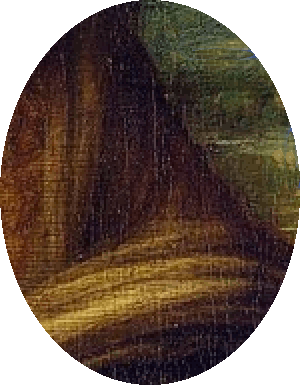
Signed by Leonardo DaVinci |
|
|